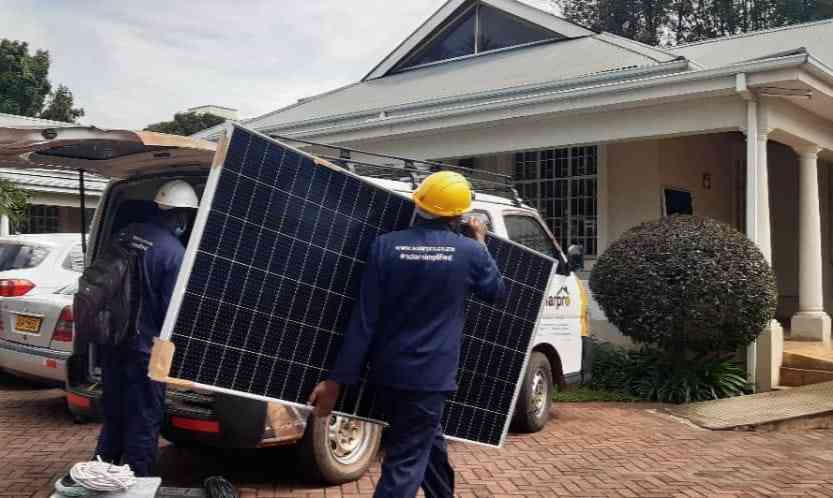
ZIMBABWE’S solar sector is poised for exponential growth, offering a lucrative investment opportunity that aligns with the country’s sustainable development goals, according to Solarpro Zimbabwe.
In its latest report, Solarpro Zimbabwe said investing in the country’s solar sector does not only promises significant returns, but also contributes to sustainable development and improved quality of life for citizens.
“As the demand for clean and reliable energy continues to rise, now is the time for forward-thinking investors to make their mark in Zimbabwe’s solar market,” Solarpro Zimbabwe chief executive officer Nyasha Chasakara said in the report.
“The potential for growth in Zimbabwe’s solar industry is immense. Statistics on how many solar panels, inverters and batteries have been imported are very difficult to get hold of.
“With a supportive regulatory framework, increasing demand for off-grid solutions, and a reliable supply of solar modules from China, the stage is set for transformative investments. Solarpro is at the forefront of increasing renewable energy adoption through innovative rent to buy solar scheme.”
The company recently launched its innovative rent-to-buy programme, making clean and sustainable energy more accessible than ever for households and businesses.
“Zimbabwe, a country rich in natural resources and potential, is poised for significant growth in its solar energy sector,” the report reads in part.
“As the country grapples with power challenges exacerbated by prolonged dry seasons and frequent power cuts, the need for reliable and sustainable energy solutions has never been greater.
- Solarpro Zim launches rent-to-buy programme
- Solar energy: A strategic investment for local firms
- Emotional intelligence imperative in supply chain management (II)
- Cost to serve analysis: The holy grail of profitability (I)
Keep Reading
“This presents a golden opportunity for investors to tap into the burgeoning solar market. Zimbabwe imports most of its solar panels from China, India and South Africa.”
The report noted that Zimbabwe’s energy landscape is characterised by a significant reliance on thermal and hydro power sources, which account for most of the power used in the country.
However, over the past two years, hydro power generation has been inconsistent due to prolonged dry seasons, with thermal power production increasing to compensate for the hydro losses.
The country is currently experiencing power cuts running up to 18 hours per day, highlighting the urgent need for alternative energy sources.
The installed capacity remains inadequate to meet demand, leading to persistent rolling blackouts that hinder economic growth and competitiveness.
Independent power producers add around 45 to 50MW, which is still very low. To meet its target of 100% electricity coverage by 2040, Zimbabwe needs to add 537,000 connections annually, according to the World Bank.
“Everyone agrees that going solar will be the fastest route towards meeting these ambitious goals,” the report said.
The report noted that China is set to hold over 80% of global solar manufacturing capacity from 2023 to 2026. The Asian giant plays a pivotal role in the global solar module market, and Zimbabwe is well-positioned to benefit from this dynamic.
In 2023, China’s solar module exports saw significant increases across various regions, with Asia and Africa being major recipients. Notably, exports to Africa have shown a steady increase, reflecting a growing market demand.
China’s solar module capacity exports by region highlight the dominance of Asia (48%) and Europe (23%), with Africa accounting for a substantial 14%.
This indicates a strong supply chain and availability of solar modules to meet Zimbabwe’s growing energy needs, the report noted.
Zimbabwe has ambitious electrification targets, aiming for 90% universal electrification by 2030 and 100% by 2040. Achieving these goals will require substantial investment in solar energy infrastructure.
The report said government’s favorable policies, coupled with the rising adoption of solar technologies, create a promising environment for investors.










